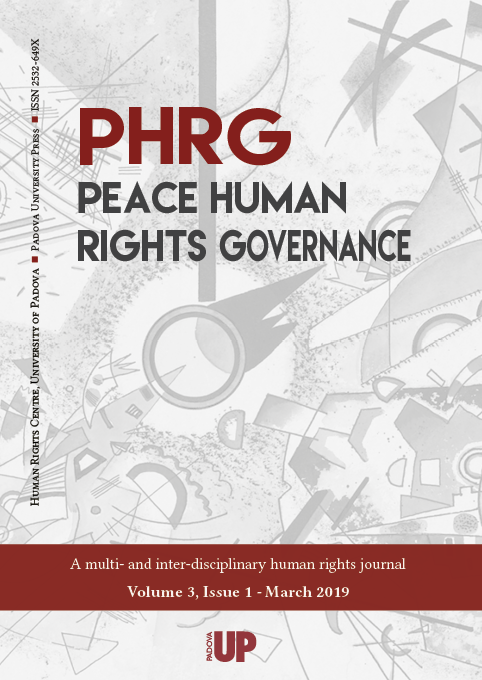Collections

Integrating Muslim Migrants with a Gender Perspective? An Analysis of Integration Policies in the City of Brussels
- Sito internet
- Peace Human Rights Governance 3(1)
- Pubblication type
- Articolo / Saggio
- Pages
- 9-33
- Language
- EN
This paper conducts a Critical Frame Analysis (CFA) of integration policies of the different institutional levels present in Brussels, from a gender perspective. The research’ hypothesis shows that gender, when taken into consideration, becomes a useful tool to defend one’s integration narrative and agenda on managing religious diversity in an increasing multicultural context. Brussels is an interesting case study when we talk about governance of integration policies due to the different levels of authority present on its territory and the many discourses intersecting when it comes to managing religious and ethnic diversity. The complex institutional division of power in the European Union and Belgian capital provides us with a challenging picture of how religious diversity should be dealt with and women of Muslim origins often become the target of policies aiming to bridge different cultural groups together. The data obtained with the CFA reveals a strong economic and securitarian framework in the text of EU documents on the matter of integration of Third Country Nationals, with little reference to its gender dimension. The two language communities (Flemish and French) with competence in the field of migrants integration in Belgium, however, seem to still approach religious diversity respectively through a multicultural and universalist lens. Can we talk about Multilevel Governance of migrants’ integration in Brussels? How do different integration narrative within the same territory perceive gender mainstreaming and in what way do they speak about women’s agency or empowerment? What role does gender play in the narrative of policy makers regarding integration of TCN and primarily Muslim communities?

